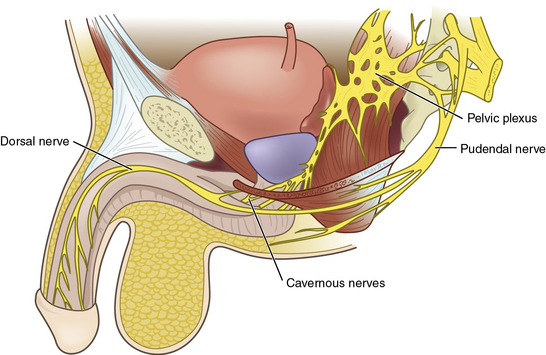Introduction
I often have patients ask if they should be taking Viagra before a prostatectomy to improve their potency after the operation, and if there are any benefits to it. My own experience (which is to be backed up by other scientific research on the matter) is that there is mostly no benefit to taking Viagra (or other drugs in the same family) before a prostatectomy, unless you are already suffering from erectile dysfunction (ED). However, there are definitely benefits to taking Viagra after a prostatectomy in terms of speeding up recovery of potency, which I will discuss in a later article.
First, let me give you some background on the nerves around the prostate, how Viagra works and the various options available to patients.
Nerves and arteries
One of the aims in radical prostatectomy is to preserve the cavernosal nerves so that men can continue to have erections (assuming they were previously able to before the operation). These cavernosal nerves are the nerves of potency – they travel from the lower part of the spinal cord, around the rectum and the back of each side of the prostate and then finally enter the pelvic floor to link with the arteries of the penis. Stimulation of these nerves causes an erection by increasing blood flow to the arteries of the penis.

We always aim to preserve these nerves as far as is possible, but if there is cancer adjacent to them – especially if the biopsy shows that it is aggressive – then preserving them would increase the risk of cancer recurrence and the need for subsequent radiotherapy. Under these circumstances, the nerve or nerves might be partially preserved or have to be completely removed, with the result being that blood flow to the penis (and hence erections) cannot be controlled like before.
The use of Viagra and other drugs to improve blood flow to the penis
As you may know, Viagra tablets (or others from from the Viagra family) are used to increase blood flow to the penis. These tablets are known scientifically as phosphodiesterase type 5 inhibitors (or PDE5i), and work by blocking the enzyme that causes penile detumesence (the process when a penis goes from erect to flaccid). The result is increased penile blood flow. There are 3 drugs in this family and each has a trade name (given to it by the company that makes it) and a generic or scientific name.
- Viagra (also known as sildenafil)
- Cialis (also known as tadalafil)
- Levitra (also known as vardenafil)
There can be some side-effects from using these – all three drugs can cause headaches, indigestion and facial flushing, while Cialis can also cause muscle pain. Viagra is the shortest-acting (a few hours) and Cialis is the longest-acting at 2-3 days, which is why the French sometimes call it ‘le weekend’).
Using Viagra before a prostatectomy
Some surgeons do advise their patients to start taking Viagra or other PDE5i tablets before prostate surgery, but there is no scientific evidence to show that this improves post-operative potency compared to men who only take it after surgery. However, improving potency after a prostatectomy isn’t the only reason patients take PDE5i tablets before the operation, as other associated benefits include:
- If the patient is already suffering from erectile dysfunction, tablets may improve their condition.
- It’s important that patients become familiar with the time taken for the drug to work, the duration of action and any side-effects. As above, they can vary quite a bit between the different versions.
- Choosing the best drug in view of these factors. Some drugs work better than others for certain patients, so it’s worth trying all of them to see what works best.
Side notes
Viagra has now come off patent and is therefore much cheaper than the others. PDE5is have been used for many years to treat impotence or erectile dysfunction (ED), including when it occurs after prostatectomy. Although these drugs increase penile blood flow, patients still need to be in the mood and still need stimulation to get and to keep an erection.

